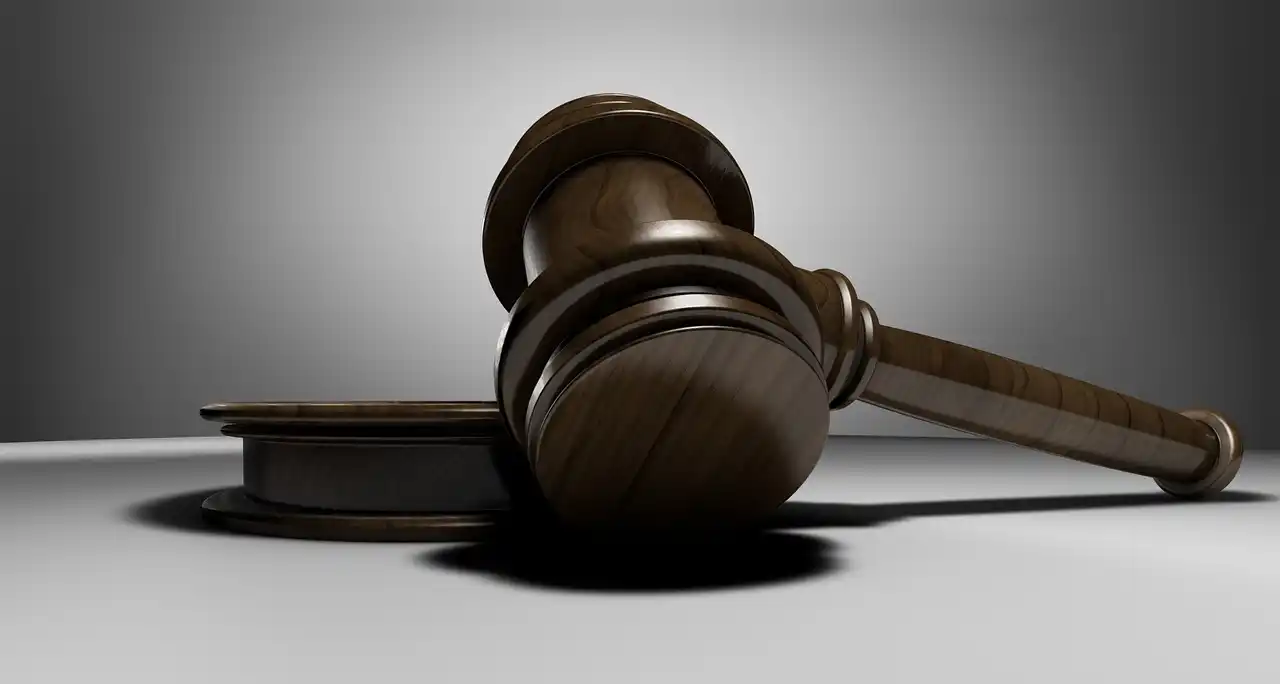The law is a critical element in every society. It sets guidelines for individual behavior, regulates societal interactions, and provides a framework for resolving disputes. Legal decisions have far-reaching impacts on communities, affecting people’s lives, businesses, and the social order. As such, it’s essential to examine how legal decisions shape society and impact communities.
This article aims to explore the relationship between law and society, specifically examining how legal decisions affect communities. We’ll start by defining the term law and examining its role in society. We’ll then discuss how legal decisions shape society and how they impact communities. Lastly, we’ll look at some of the key factors that affect legal decisions and how communities can influence them.
What is Law and What is its Role in Society?
Law refers to a set of rules and regulations that are enforced by a governing authority to regulate human behavior within a society. The primary objective of law is to maintain order and ensure justice. Laws are created to protect individual rights, prevent harm, and provide a framework for resolving disputes.
The role of law in society is multifaceted. First, it sets guidelines for individual behavior, defining what is acceptable and what is not. For instance, traffic laws regulate how people drive on the road, while criminal laws prohibit certain behaviors such as theft, murder, and assault.
Second, law regulates societal interactions, including business transactions, employment relations, and marriage. It provides a framework for resolving disputes between parties, ensuring that justice is served, and peace is maintained.
Third, law shapes society by reflecting its values and priorities. It provides a legal framework for addressing societal problems, such as poverty, discrimination, and environmental degradation. Through legal decisions, society can make progress towards its goals, such as achieving social justice, promoting economic development, and protecting human rights.
How Legal Decisions Shape Society?
Legal decisions have far-reaching impacts on society. They affect people’s lives, businesses, and the social order. For instance, a legal decision to legalize same-s-e-x marriage has significant implications for LGBTQ communities, providing them with equal rights and recognition under the law.
Legal decisions also shape society by providing a framework for resolving disputes. They establish legal precedents that guide future cases and promote consistency and fairness in legal outcomes. For example, the landmark case of Brown v. Board of Education, which ruled that segregation in public schools was unconstitutional, paved the way for desegregation efforts in the United States.
Moreover, legal decisions can promote social change by challenging existing norms and values. For instance, the Supreme Court’s decision in Roe v. Wade, which legalized abortion in the United States, was a significant milestone in women’s reproductive rights and challenged traditional views on gender roles and family values.
How Legal Decisions Impact Communities?
Legal decisions can have both positive and negative impacts on communities. On the one hand, they can promote social justice, protect individual rights, and advance societal goals. On the other hand, they can create legal uncertainties, cause economic disruptions, and challenge social norms.
One way legal decisions impact communities is through their economic effects. For instance, a legal decision to restrict a particular industry or regulate a product can have significant impacts on businesses and their employees. It can lead to job losses, business closures, and economic downturns in affected communities.
Similarly, legal decisions can also affect the social order by promoting or challenging existing norms and values. For example, a legal decision to legalize same-s-e-x marriage can challenge traditional views on marriage and family, causing social and cultural tensions in some communities.
Moreover, legal decisions can have profound impacts on vulnerable populations, such as minorities, women, and low-income individuals. For instance, a legal decision to restrict voting rights can disproportionately affect minority communities, making it harder for them to participate in the democratic process. Similarly, a legal decision to repeal healthcare protections can have severe consequences for low-income individuals and families who rely on these services to maintain their health and wellbeing.
Factors Affecting Legal Decisions
Legal decisions are not made in a vacuum. They are influenced by a wide range of factors, including political, social, economic, and cultural factors. Understanding these factors is crucial to examining the impact of legal decisions on communities and promoting social justice and equity.
Political Factors
Political factors play a significant role in shaping legal decisions. These include the political leanings of the judges or lawmakers, the influence of interest groups, and the priorities of the government.
For instance, the political leanings of the judges on the Supreme Court can significantly impact their legal decisions. Judges are often appointed by political leaders who share their ideology, and their decisions can align with their political beliefs. This can lead to decisions that favor certain interest groups or political agendas.
Similarly, interest groups, such as business associations or advocacy organizations, can influence legal decisions by lobbying lawmakers or judges. These groups may have significant financial or social power, and their influence can impact the outcome of legal cases.
Lastly, the priorities of the government can also shape legal decisions. The government may prioritize economic development, national security, or social welfare, and legal decisions may reflect these priorities. For example, a government that prioritizes economic growth may be more likely to pass laws that favor businesses, even if it comes at the expense of social or environmental protections.
Social Factors
Social factors, such as culture, values, and beliefs, also impact legal decisions. Legal decisions may reflect societal attitudes towards particular issues or groups, and they may challenge or reinforce existing social norms.
For example, legal decisions on issues such as abortion, LGBTQ rights, or immigration can reflect societal attitudes towards these groups. These decisions may challenge or reinforce existing social norms, causing social and cultural tensions.
Moreover, social factors can also influence the way legal decisions are implemented. Legal decisions that challenge social norms may be met with resistance from individuals or groups who oppose these changes. Similarly, legal decisions that reinforce existing norms may face challenges from those who seek to challenge the status quo.
Economic Factors
Economic factors also play a role in shaping legal decisions. These include the economic interests of businesses or individuals, the availability of resources, and the economic conditions of the society.
For instance, businesses may lobby for legal decisions that favor their economic interests, such as tax breaks or deregulation. These decisions may have significant impacts on the economy, leading to economic growth or downturns.
Similarly, legal decisions may be influenced by the availability of resources. For example, a society that has limited resources may prioritize legal decisions that promote conservation or sustainability, while a society with abundant resources may prioritize legal decisions that promote economic growth.
Cultural Factors
Cultural factors, such as language, religion, and ethnicity, can also impact legal decisions. These factors may reflect the diversity of the society or the dominant culture, and they may influence legal decisions on issues related to identity, diversity, and inclusion.
For example, legal decisions on issues such as language rights or religious freedom may reflect the diversity of the society and the need to respect different cultural traditions. Similarly, legal decisions on issues such as racial or gender discrimination may reflect efforts to promote diversity and inclusion in society.
How Communities Can Influence Legal Decisions?
Communities have an important role to play in shaping legal decisions that impact their lives. There are several ways in which communities can influence legal decisions, including through advocacy, activism, and civic engagement.
=>Advocacy
Advocacy involves making a case for a particular issue or cause, usually through public education, awareness-raising, and lobbying. Advocacy can be an effective way for communities to influence legal decisions by raising awareness about their concerns and mobilizing support for their cause.
Communities can engage in advocacy by forming community organizations, grassroots movements, or coalitions that focus on specific issues. These groups can conduct research, gather evidence, and present their findings to lawmakers or decision-making bodies. They can also organize rallies, protests, or public campaigns to raise awareness and generate public support.
By actively advocating for their interests, communities can bring attention to important issues and influence the decision-making process. Elected officials and policymakers often take into account the concerns and preferences of their constituents when making legal decisions. Therefore, community advocacy can have a direct impact on shaping legal decisions that align with the needs and values of the community.
Activism
Activism involves taking direct action to bring about social or political change. It can include activities such as demonstrations, boycotts, civil disobedience, or grassroots organizing. Communities can engage in activism to draw attention to specific legal issues or injustices and to demand change.
Through activism, communities can bring public visibility to issues that may not be receiving adequate attention. By organizing protests or demonstrations, communities can mobilize public support and put pressure on decision-makers to address their concerns. Activism can be a powerful tool for communities to challenge unjust legal decisions and advocate for more equitable and just alternatives.
Civic Engagement
Civic engagement refers to the active participation of individuals and communities in the democratic process. It involves activities such as voting, attending public hearings, joining community boards or commissions, and contacting elected officials. By actively engaging in the democratic process, communities can have a voice in shaping legal decisions.
When communities participate in elections, they can elect officials who share their values and priorities. By voting for candidates who align with their interests, communities can influence the composition of legislative bodies and the decision-making process. Additionally, by attending public hearings or contacting elected officials, communities can directly express their concerns and perspectives on specific legal issues.
Furthermore, communities can establish dialogue and collaboration with policymakers and legal professionals. By building relationships with decision-makers, communities can ensure that their voices are heard and considered when important legal decisions are being made. This engagement can involve participating in public forums, attending community meetings, or even inviting decision-makers to community events to foster understanding and cooperation.
Conclusion
The impact of legal decisions on communities is significant and wide-ranging. Legal decisions shape society by providing a framework for behavior, regulating interactions, and reflecting societal values. They have profound effects on communities, influencing economic conditions, social norms, and the lives of individuals.
Understanding the factors that influence legal decisions, such as political, social, economic, and cultural factors, is crucial to comprehending their impact on communities. By recognizing these factors, communities can effectively advocate for their interests, challenge unjust decisions, and promote more equitable and just outcomes.
Communities have the power to influence legal decisions through advocacy, activism, and civic engagement. By raising awareness, mobilizing support, and actively participating in the democratic process, communities can shape the legal landscape in ways that align with their values and priorities.
Ultimately, examining the impact of legal decisions on communities is essential for promoting a fair and just society. It highlights the need for inclusive decision-making processes, equal access to justice, and the empowerment of communities to actively participate in shaping the laws that govern them. Only through such efforts can we create legal systems that truly serve and benefit all members of society.






